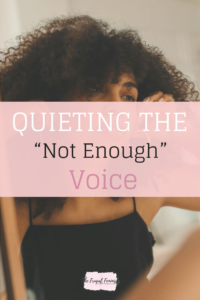
As Black women, we tend to put ourselves last and push ourselves to the limit at work and at home. This is often to our detriment. As coronavirus (COVID-19) graduates from being a global health crisis to being declared a pandemic by the World Health Organization, maintaining our health is the highest priority. Period.
“We have to remember the airplane oxygen mask analogy that says we must first put on our own oxygen mask before we can help others. We have to ensure that we are well in order to keep our families well,” says Dr. Omolara Thomas Uwemedimo, a board-certified pediatrician and founder of Melanin Medicine & Motherhood, warns.
The Basics
Staying well in the era of the coronavirus disease begins with staying informed. “Nationally, the Centers for Disease Control and Prevention (CDC) is the most reliable source for information about the global situation and cases in the United States. Locally, Black women can also find out what is occurring in their state through their state Department of Health’s website,” Uwemedimo offers.
We also have to make sure we educate our children about coronavirus so they can be proactive in preventing the spread as well.
“Whether it be in school, social media, television or other venues, children may be getting incorrect information that can range from the extreme, such as ‘we are all going to die’ to the very lax like ‘we can’t get coronavirus’. As adults, it is helpful to share the truth about the virus, especially about the effectiveness of handwashing, avoiding close person-to-person contact and letting them know that the majority of people only develop mild symptoms,” Uwemedimo says.
In the event you suspect you’ve contracted coronavirus, remember you are one of your best advocates, especially when dealing with a healthcare system that has historically delayed or denied diagnoses and/or treatment because of gender-based and race-based implicit bias. To increase our chances of an informed diagnosis, Uwemedimo believes it’s best practice to document as much information as possible – including the start of and type of symptoms, pain, sick contacts and any recent travel, both locally and/or internationally.
And don’t be afraid to open your mouth when you need clarification, “If a provider doesn’t believe that further testing is indicated, they should share with you their reasoning and ensure that you are comfortable with that decision,” Uwemedimo suggests.
Your Job: Your Life
 Our individual efforts to eradicate coronavirus have to be matched by workplace policies that make it easy for us to attend to our health. In other words, we need policies that don’t force us to choose between our health and job security.
Our individual efforts to eradicate coronavirus have to be matched by workplace policies that make it easy for us to attend to our health. In other words, we need policies that don’t force us to choose between our health and job security.
As workplaces scramble to respond to local and national updates around the virus, their policies are likely to shift and will require revision along the way. If you’re unclear as to the most updated policy or want to offer suggestions, communicate them early on so you and others can benefit.
“It’s important for Black women to speak up as to how their jobs’ response to this virus will affect them. For example, if someone is taking care of a loved one in the vulnerable category, it is not worth the risk of commuting every day, workplaces should consider work from home options, ” says Tiffany Williams, Director of Operations of Girls for Gender Equity, an intergenerational grassroots organization committed to the physical, psychological, social, and economic development of girls and women.
“It’s important for Black women to speak up as to how their jobs’ response to this virus will affect them”
SAYS TIFFANY WILLIAMS OF GIRLS FOR GENDER EQUITY
Though necessary, this is easier said than done in workplace environments that overtly or covertly discourage open communication. Workplaces with leadership that is transparent and available to its people, stand the greatest chance of maintaining a sense of normalcy and engendering respect and trust from their people.
“The best way to respond to employee concerns is with consistent and clear communication. It’s critical to ensure employees have access to their manager, senior leadership, and HR at all times to voice concerns and ask questions,” Williams adds.
If you’ve been soured by how your current workplace handled employee concerns during the coronavirus scare and are contemplating an exit, use this experience to inform your next career move and determine the values of your ideal workplace.
“Black women need to advocate for a work environment that is flexible enough to meet their needs. When interviewing for a job, the company is deciding if you are the right fit for them, but you are also deciding if they are the right fit for you. A company that does not prioritize quality health care probably does not value its employees,” Williams offers.
It’s only the third month of 2020 and we are in the midst of a global pandemic. As we work together as a global community to suppress the outbreak, let’s continue to do our part at home and at work to stay safe and calm. In doing so, the end of this storm will come sooner rather than later.










